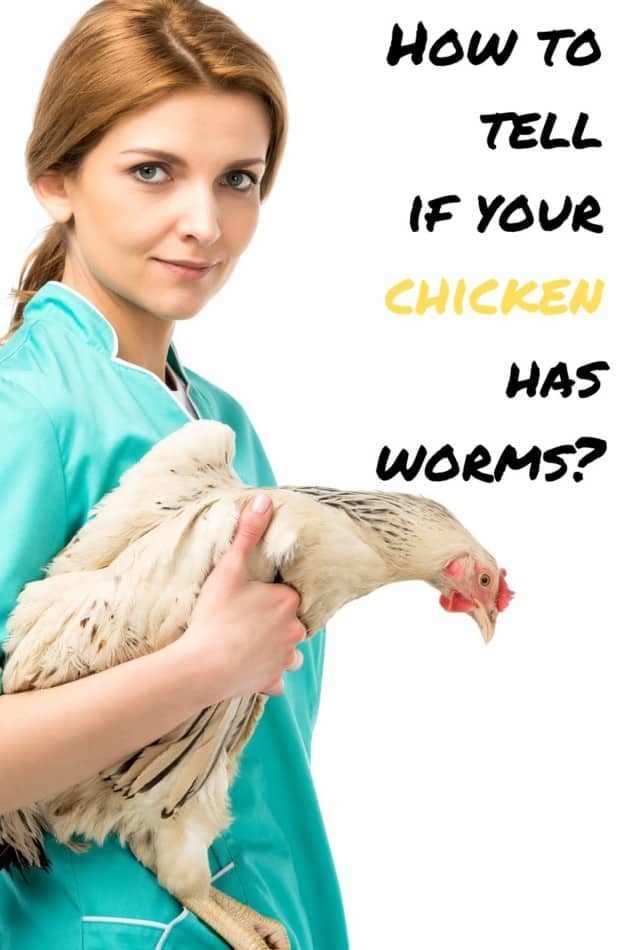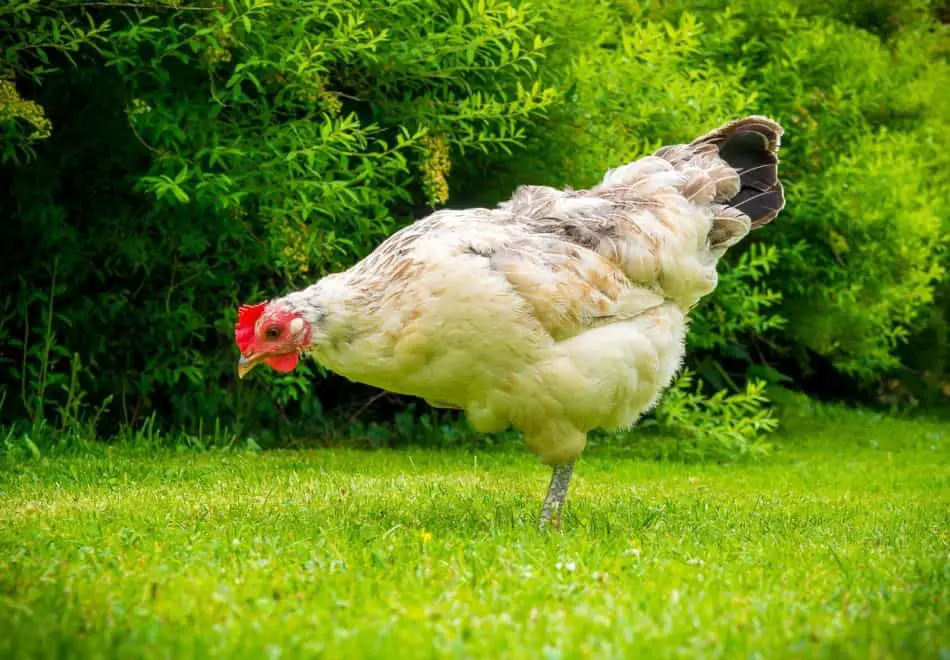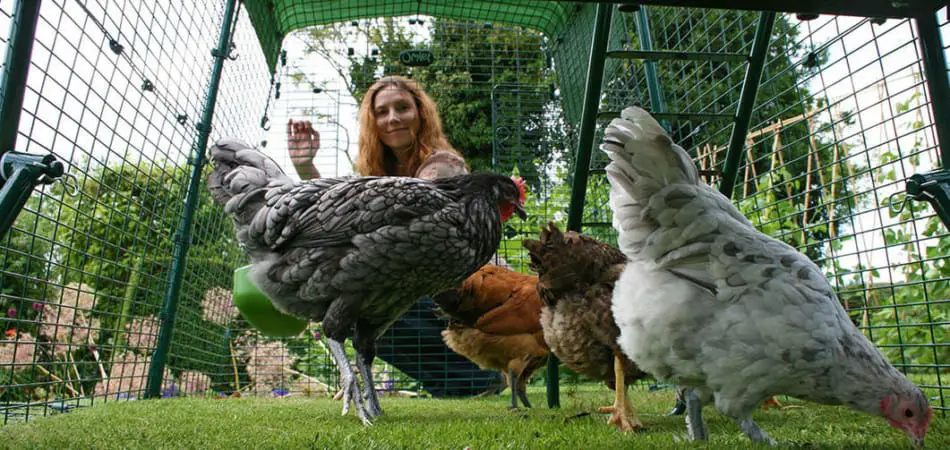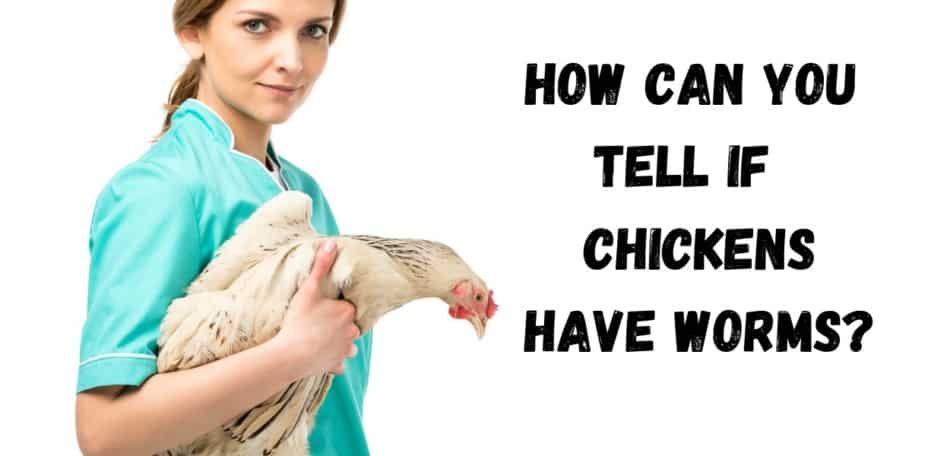Poor health is stressful for both you and your hens and any issues that crop up need to be tackled early.
Parasitic worms are a common problem that you may encounter while keeping hens at home. These internal parasites are not only contagious but recurrent and can rapidly overtake your flock, so it is important to stay vigilant for signs of their presence and be proactive about getting rid of them. But, How To Tell If Chickens Have Worms?
Mild cases may go unnoticed, but if left untreated you may lose birds. This article explores how you can tell if your chickens have worms and the common types of worms you’ll need to look out for.
We’ll also look at how you can treat worms effectively and prevent them from coming back.

Table of Contents
The parasitic worms that can harm your hens.
Your backyard hens are susceptible to a range of intestinal parasites that are usually grouped together as ‘worms’. These include.
- Large roundworms are nasty and can kill your birds quickly. Also known as Ascaris sp., these worms are large enough to be seen with the naked eye. These worms are the thickness of a pencil lead and can grow up to 5 inches long! They grow from eggs that are ingested by the hen and have a devastating effect on a chicken’s absorption of vital nutrients and can even migrate into a hen’s reproductive system and enter developing eggs.
- Small roundworm species are less severe but can target the crop and cause nasty inflammation and even hemorrhage of the guts of a chicken. They are known as Capillaria sp. If present in large numbers they can kill birds after a prolonged illness.
- Caecal worms target the caecum, the part of the chicken’s gut where the small and large intestine meet. It rarely causes significant problems in chickens but can cause a fatal disease if it is transmitted to turkeys.
- Chicken tapeworms only infect chicken and have the typical long flat segmented appearance. They are difficult to eradicate as each of the segments shed by the work in the chicken’s stool is crammed with thousands of minute eggs that can each give rise to more parasites. They attach to specific sections of the digestive tract and can grow up to a foot long!

How do chickens become infected with worms?
Worms have a complex reproductive cycle that means that stages of their development from eggs are either directly within the infected hen or an intermediate host. For your backyard hens, infected eggs are either
1. directly ingested by eating contaminated feed, litter, droppings, or drinking infected water.
or
2. eating an intermediate host that carries the worm’s eggs. These include:
- Earthworms
- Snails
- Beetles
- Grasshoppers
- Housefly
- Slugs
- Termites
- Ants
What are the symptoms of worm infection in my hens?
Be quick to consider the presence of worms if you encounter the following problems in your flock:
- Weight loss
- Poor growth
- Increased feed requirements
- Reduced egg production
- Lethargy
- Foul droppings and diarrhea
- Increased susceptibility to disease
- Prolonged recovery from illness
- Breathing problems
- Death
Worms may be visible in stools or even found within the eggs or eyes of an infected hen!
If a parasitic infection gets out of hand, the effects on your chickens can be severe. Be quick to exclude parasites if you see any of the above symptoms as an entrenched disease is harder to eradicate.

Treatment of worm infections in chickens.
Tackling worms in your hens requires proactive and persistent management, with measures needed to prevent further infection once the flock is recovered. A three-pronged approach works best:
1.Diet
Worms place additional demand on a hen’s metabolism and so achieving adequate nutrition is vital to prevent the parasite from further weakening your bird.
Clean feed should be changed frequently and enhanced with vitamin and mineral supplementation. In particular, a deficiency of vitamin A has been associated with increased vulnerability to parasites.
Some home poultry pros also recommend natural alternatives such as diatomaceous earth, garlic, and apple cider vinegar.
2.Sanitation
This is a must for bringing an outbreak of worms under control. Neglect in this area kills.
You will need to step up your turnover of litter and bedding for your hens, keeping it as clean and dry as you can. Check that your hens are not overcrowded in their roost, and obtain bigger housing if needed.
It is also prudent to ensure that your hens are not in contact with wild birds that may be shedding worm eggs that they can pick up.
Restricting free-range chickens can also prevent them from eating worms or grubs that carry the parasite eggs too.
Keep grass mowed and your coop area shade-free as strong UV can kill off the eggs. Avoid waterlogged and muddy areas as worms thrive in this kind of environment.
3.Treatments
You have probably heard of de-worming, which works to reduce the load of intestinal parasites and has the additional advantages of bringing down parasite levels in the hens’ environment.
For specific treatments to be used you will have to have the type of worm infection present diagnosed by a veterinarian.
Treatments are usually added at an appropriate dosage to drinking water. Active ingredients that will eradicate worms include:
- Piperazine
- Levamisole
- Oxfendazole
- Praziquantel
Remember to hold off eating eggs from chickens that have been treated with these drugs for 14 days to ensure that you don’t get a dose too
READ: 31 Helpful tips for keeping chickens
Prevention is key
A run-in with worms is no fun for you or your hens and like some owners, you may want to take preventative measures by giving your hens de-worming treatment every six months.
Of course, good diet and hygiene as explained here will go a long way to keeping your hens resilient and less of an easy-touch for worms and other parasites.
Do you have any advice and tips on managing worms in backyard hens? Share your experiences in the comments section below!
Happy hen keeping!




